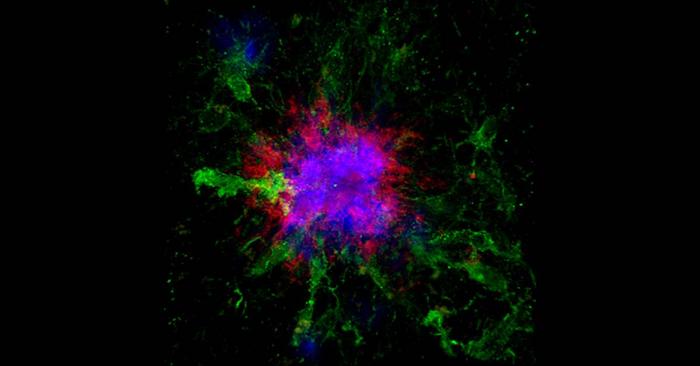Nearly 80% of people with Alzheimer’s disease (AD) experience disruption to the body’s circadian rhythm, including difficulty sleeping and worsening cognitive function at night. Now, a new study from researchers at the University of California (UC), San Diego, School of Medicine has shown, in mice, that it is possible to correct the circadian disruptions seen in AD with time-restricted feeding—a type of intermittent fasting focused on limiting the daily eating window without caloric restriction.
This research is published in Cell Metabolism in the paper, “Circadian modulation by time-restricted feeding rescues brain pathology and improves memory in mouse models of Alzheimer’s disease.”
In the study, mice that were fed on a time-restricted schedule showed improvements in memory and reduced accumulation of amyloid proteins in the brain.
“For many years, we assumed that the circadian disruptions seen in people with Alzheimer’s are a result of neurodegeneration, but we’re now learning it may be the other way around—circadian disruption may be one of the main drivers of Alzheimer’s pathology,” said Paula Desplats, PhD, professor in the department of neurosciences at UC San Diego School of Medicine. “This makes circadian disruptions a promising target for new Alzheimer’s treatments, and our findings provide the proof-of-concept for an easy and accessible way to correct these disruptions.”
People with Alzheimer’s disease experience a variety of disruptions to their circadian rhythms, including changes to their sleep/wake cycle, increased cognitive impairment and confusion in the evenings, and difficulty falling and staying asleep.
“Circadian disruptions in Alzheimer’s are the leading cause of nursing home placement,” said Desplats. “Anything we can do to help patients restore their circadian rhythm will make a huge difference in how we manage Alzheimer’s in the clinic and how caregivers help patients manage the disease at home.”
Boosting the circadian clock is an emerging approach to improving health outcomes. One way to accomplish this is by controlling the daily cycle of feeding and fasting. The researchers tested this strategy in a mouse model of Alzheimer’s disease, feeding the mice on a time-restricted schedule where they were only allowed to eat within a six-hour window each day. For humans, this would translate to about 14 hours of fasting each day.
Compared to control mice who were provided food at all hours, mice fed on the time-restricted schedule (without caloric restriction) had better memory, were less hyperactive at night, followed a more regular sleep schedule, and experienced fewer disruptions during sleep. The test mice also performed better on cognitive assessments than control mice, demonstrating that the time-restricted feeding schedule was able to help mitigate the behavioral symptoms of Alzheimer’s disease.
The authors write that the time-restricted feeding “improved key disease components including behavioral timing, disease pathology, hippocampal transcription, and memory in two transgenic mouse models of AD.”
The researchers also observed improvements in the mice on a molecular level. In mice fed on a restricted schedule, the researchers found that multiple genes associated with Alzheimer’s and neuroinflammation were expressed differently. They also found that the feeding schedule helped reduce the amount of amyloid protein that accumulated in the brain.
More specifically, they found that time-restricted feeding had the “remarkable capability of simultaneously reducing amyloid deposition, increasing Aβ42 clearance, improving sleep and memory, and normalizing daily transcription patterns of multiple genes, including those associated with AD and neuroinflammation.”
The authors added that their study unveils, for the first time, “the pleiotropic nature of timed feeding on AD, which has far-reaching effects beyond metabolism, ameliorating neurodegeneration and the misalignment of circadian rhythmicity.”
Because the time-restricted feeding schedule was able to substantially change the course of Alzheimer’s in the mice, the researchers are optimistic that the findings could be easily translatable to the clinic, especially since the new treatment approach relies on a lifestyle change rather than a drug.
“Time-restricted feeding is a strategy that people can easily and immediately integrate into their lives,” said Desplats. “If we can reproduce our results in humans, this approach could be a simple way to dramatically improve the lives of people living with Alzheimer’s and those who care for them.”



